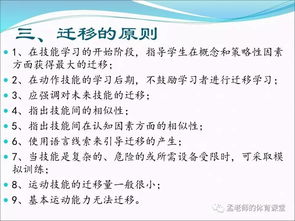The field of sports psychology delves into the intricate interplay between the mind and athletic performance. This paper embarks on a journey to unravel the multifaceted dimensions of sports psychology, shedding light on its significance in enhancing athletes' mental resilience, focus, and overall wellbeing. Through a comprehensive exploration of various psychological principles and techniques tailored to athletes, this paper elucidates the profound impact of psychological factors on sports performance. From goalsetting strategies to visualization techniques, from overcoming performance anxiety to fostering team cohesion, each facet contributes to the holistic development of athletes. By understanding and harnessing the power of sports psychology, athletes can unlock their full potential and achieve peak performance.
In the realm of sports, where physical prowess often takes the spotlight, the significance of mental fortitude cannot be overstated. Sports psychology serves as the bridge between the physical and mental realms, shaping athletes' attitudes, behaviors, and ultimately, their performance outcomes. This paper endeavors to delve into the depths of sports psychology, exploring its fundamental principles, methodologies, and applications in optimizing athletic performance.

Central to sports psychology is the understanding of the athlete's psyche. From intrinsic motivation to selfefficacy beliefs, numerous psychological constructs influence athletes' performance levels. Selfdetermination theory elucidates the role of autonomy, competence, and relatedness in fostering athletes' intrinsic motivation, driving them towards their goals with passion and perseverance. Moreover, Bandura's concept of selfefficacy highlights the pivotal role of athletes' beliefs in their capabilities to execute specific tasks effectively, influencing their choice of activities, effort expenditure, and resilience in the face of adversity.
Goal setting stands as a cornerstone of sports psychology, providing athletes with a roadmap towards success. Through the establishment of clear, challenging, and attainable goals, athletes channel their efforts and energies effectively, enhancing their motivation and commitment levels. The SMART criteria—specific, measurable, achievable, relevant, and timebound—serve as a guiding framework for goal setting, enabling athletes to delineate their objectives with precision and clarity. By aligning their actions with their aspirations, athletes cultivate a sense of purpose and direction, propelling them towards peak performance.
Mental imagery emerges as a potent tool in the arsenal of sports psychology, enabling athletes to rehearse and refine their skills in the theater of their minds. Through vivid sensory experiences, athletes simulate game scenarios, visualize successful performances, and instill a sense of confidence and preparedness. Whether it's picturing the perfect golf swing or envisioning the flawless execution of a gymnastics routine, mental imagery fosters neural pathways associated with skill acquisition and execution, priming athletes for peak performance when the stakes are high.
Performance anxiety looms as a formidable obstacle in the pursuit of athletic excellence, disrupting athletes' focus, composure, and confidence. Cognitivebehavioral techniques offer a repertoire of strategies to combat performance anxiety, empowering athletes to reframe negative thoughts, regulate arousal levels, and maintain psychological equilibrium under pressure. From diaphragmatic breathing to progressive muscle relaxation, from positive selftalk to attentional focus cues, each technique equips athletes with the psychological armor to confront and conquer their inner demons, fostering a mindset of resilience and mental toughness.
In team sports, the dynamics of interpersonal relationships play a pivotal role in shaping team cohesion and collective efficacy. Social identity theory elucidates how individuals derive their sense of selfworth and belonging from their affiliation with a particular group, fostering a sense of unity, solidarity, and shared goals among teammates. Through teambuilding exercises, communication workshops, and conflict resolution strategies, coaches and sports psychologists cultivate a culture of trust, respect, and collaboration within the team, fortifying its resilience and cohesion in the face of adversity.
In conclusion, sports psychology serves as a beacon of guidance and inspiration for athletes seeking to unlock their full potential. By cultivating mental resilience, focus, and wellbeing, athletes transcend the constraints of physicality, harnessing the power of the mind to achieve extraordinary feats of performance. As we continue to explore and embrace the myriad facets of sports psychology, we embark on a transformative journey towards excellence, pushing the boundaries of human potential in the pursuit of sporting greatness.
Deci, E. L., & Ryan, R. M. (2000). The "what" and "why" of goal pursuits: Human needs and the selfdetermination of behavior. Psychological Inquiry, 11(4), 227268.
Bandura, A. (1997). Selfefficacy: The exercise of control. Macmillan.
Locke, E. A., & Latham, G. P. (2002). Building a practically useful theory of goal setting and task motivation: A 35year odyssey. American Psychologist, 57(9), 705717.
Feltz, D. L., & Landers, D. M. (1983). The effects of mental practice on motor skill learning and performance: A metaanalysis. Journal of Sport Psychology, 5(1), 2557.
Hardy, L., Jones, G., & Gould, D. (1996). Understanding psychological preparation for sport: Theory and practice of elite performers. John Wiley & Sons.
Carron, A. V., Brawley, L. R., & Widmeyer, W. N. (1998). The measurement of cohesion in sport and exercise. Advances in Sport and Exercise Psychology Measurement, 213226.
This HTML document provides a comprehensive overview of the dynamics of sports psychology, exploring its various facets and applications in optimizing athletic performance. From understanding the athlete's mind to managing performance anxiety and fostering team cohesion, each section offers valuable insights and practical strategies for athletes, coaches, and sports psychologists alike.

引言在中华文化的丰富宝库中,成语是一种独特的语言现象,它们不...

引言在中华文化中,生肖与成语常常紧密相连,许多成语通过生肖来...

在香港的博彩文化中,“特马”是一个备受关注的话题。每逢开奖时刻,...

在2024年,澳门内部资料中的“挑毛剔刺_BT32.82.93”...

在2024年的澳门特马最新报价中,挑毛剔刺(WP38.38.39...